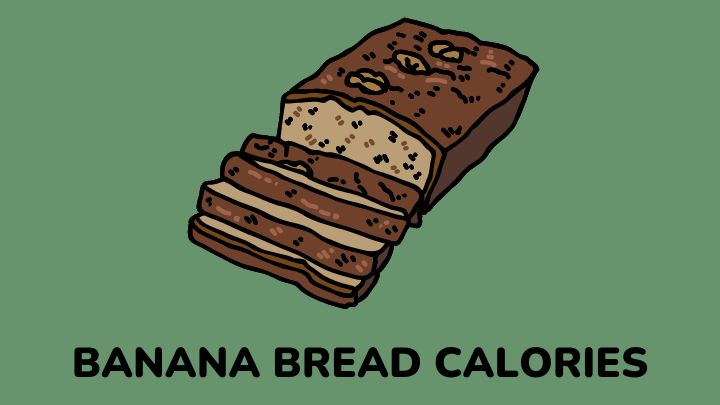How many calories are in banana bread? Should it be a part of your diet?
Banana bread, a beloved comfort treat found in kitchens globally, is made from ripe bananas, flour, sugar, eggs, and butter, creating a moist delight that goes beyond a sweet treat.
With the increasing focus on healthy eating, weight management, and addressing specific health conditions, it’s no surprise that many people are intentional about eating calorie-friendly snacks.
In this article, I’ll discuss the calorie content of banana bread, looking at potential health benefits and risks. To help you make informed choices, I’ll also suggest some healthier alternatives.
So, if you’re on a journey toward better nutrition or calorie-conscious choices, this article is here to guide you through the details of banana bread – the number of calories, health benefits, and its alternatives.
What is in banana bread?
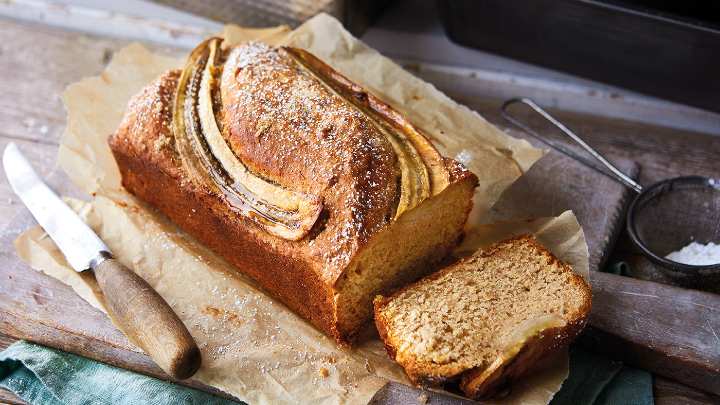
Banana bread keeps things simple yet delicious with a few key ingredients – ripe bananas, flour, eggs, sugar, and butter. Ripe bananas are one of the major ingredients in banana bread. They bring in the natural sweetness and moisture.
Flour forms the base, while eggs make sure everything sticks together just right. Sugar adds extra sweetness to complement the bananas. Butter, with its creamy richness, gives the extra depth of flavor.
All these ingredients work together to turn a basic loaf into the yummy banana bread we all enjoy.
How many calories are in banana bread?
Delving into the calorie count of banana bread unveils a moderate energy package. A standard slice typically carries around 200-250 calories, though exact numbers can vary based on ingredients and portion sizes.
Understanding the calorie content helps you to savor this beloved treat in mindful moderation, making it a delightful addition to our balanced diet.
What is the nutritional profile of banana bread?
A typical 100-gram serving of banana bread offers the following nutritional breakdown:
- Calories – 421 calories
- Dietary fiber – 1.5 grams
- Fat – 15.8 grams
- Protein – 5.3 grams
- Carbohydrates – 68.5 grams
- Cholesterol – 25 mg
- Sodium – 298 mg
- Potassium – 200 mg
- Phosphorus – 75 mg
- Magnesium – 20 mg
Other trace minerals are present in smaller amounts, contributing to the overall nutritional composition of this delightful treat. Understanding these details empowers us to make informed choices about our indulgences.
Is banana bread healthy?
Banana bread, a comfort-packed joy, holds a nuanced impact on health. Below are the health benefits you get to enjoy in your loaf:
Nutrient boost from bananas
Ripe bananas, a cornerstone of banana bread, bring more than just sweetness. They’re loaded with potassium and vitamin C.
Potassium supports heart health, helping maintain a steady heartbeat, while vitamin C gives your immune system a boost, helping you stay healthy.
Dietary fiber for digestive health
Beyond the delightful taste, banana bread packs a punch of dietary fiber. This fiber aids digestion, ensuring a smooth journey through your digestive system.
It also fills you up, promoting a sense of fullness and supporting regular bowel movements for a healthy gut.
Natural sweetness reducing added sugars
Banana bread’s secret weapon lies in the natural sweetness of ripe bananas. This inherent sweetness allows for a reduction in added sugars, aligning with health recommendations.
By minimizing added sugars, you’re taking a step towards reducing the risk of health issues such as obesity and dental problems.
Fats from ingredients
Butter or oil in banana bread contributes to its rich texture and taste. While fats are part of a balanced diet, it’s essential to consume them in moderation. This mindful approach helps manage overall calorie intake and keeps saturated fat levels in check.
Caloric content for energy
Banana bread serves as a moderate energy source, containing 421 calories per 100-gram serving. This makes it a handy option for a quick energy boost, particularly beneficial for those needing a pick-me-up during their day.
An enjoyable way to incorporate fruits into your diet
Banana bread adds a delightful twist to incorporating fruits into your diet, especially for picky eaters. It becomes an alternative, enjoyable method to encourage the consumption of fruits, contributing to healthier eating habits.
Rich in antioxidants
Banana bread, thanks to ripe bananas, contains antioxidants that help combat oxidative stress in the body. These antioxidants play a role in protecting cells from damage, contributing to overall well-being.
Heart-healthy ingredients
The potassium content in banana bread not only supports heart health but also helps maintain proper blood pressure levels, promoting cardiovascular well-being.
Can banana bread be unhealthy?
While banana bread brings nutritional benefits to the table, it can take a detour into the unhealthy zone if not approached with care. Here are a couple more reasons to consider:
Added sugars and fats
Excessive use of sugar and butter in banana bread recipes can be a sweet trap. This indulgence not only heightens the calorie count but also increases sugar and saturated fat intake.
Being mindful of these ingredients ensures you savor the sweetness without compromising on health.
Caloric intake
Banana bread, enjoyed in large quantities, may lead to a surge in overall caloric intake. This surplus can have implications for weight management and overall health. It’s a reminder that even with healthier treats, moderation remains the key to a balanced diet.
Processed ingredients
Commercially produced banana bread might sneak in preservatives and additives. These ingredients, though enhancing shelf life, can compromise the nutritional value. Opting for homemade or carefully sourced banana bread helps sidestep these processed pitfalls.
Being aware of these factors allows you to enjoy banana bread in a healthy manner, ensuring it stays a delightful part of your balanced diet without veering into unhealthy territory.
Portion control is key
Despite these benefits, moderation remains crucial. Overindulging in banana bread may lead to excess calorie, sugar, and fat intake, impacting overall health.
Balancing enjoyment with awareness ensures a holistic perspective, allowing you to savor this treat without compromising your well-being.
Banana bread, with its blend of flavors, textures, and newfound health benefits, can indeed be a scrumptious addition to a balanced diet.
Understanding its multifaceted impact empowers individuals to make informed choices for their overall well-being, fostering a healthier and more enjoyable lifestyle.
Healthy alternatives to banana bread
Craving a healthier spin on the classic banana bread? Dive into these alternatives that not only amp up the nutrition but also keep the delectable taste intact.
Whole wheat banana bread
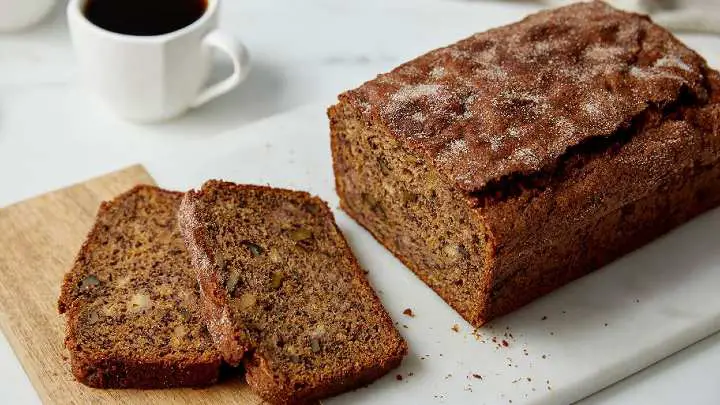
Choose whole wheat flour over refined flour for an added boost of fiber and nutrients. This simple swap enhances the bread’s nutritional value.
Oatmeal banana bread
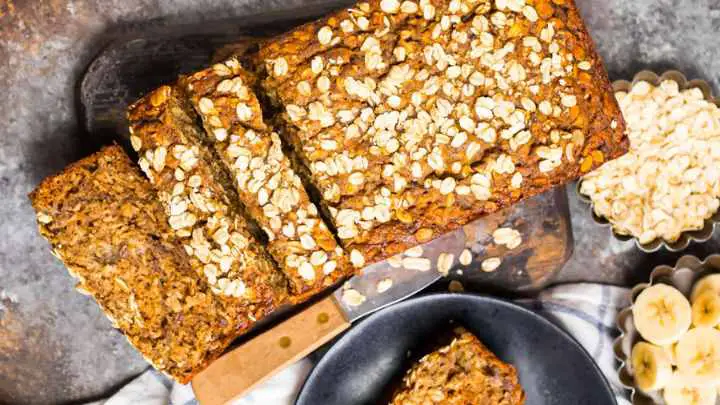
Infuse oats into your banana bread for a heartier texture and an extra dose of fiber. This not only promotes a sense of fullness but also contributes to a healthier digestive system.
Nut butter banana bread
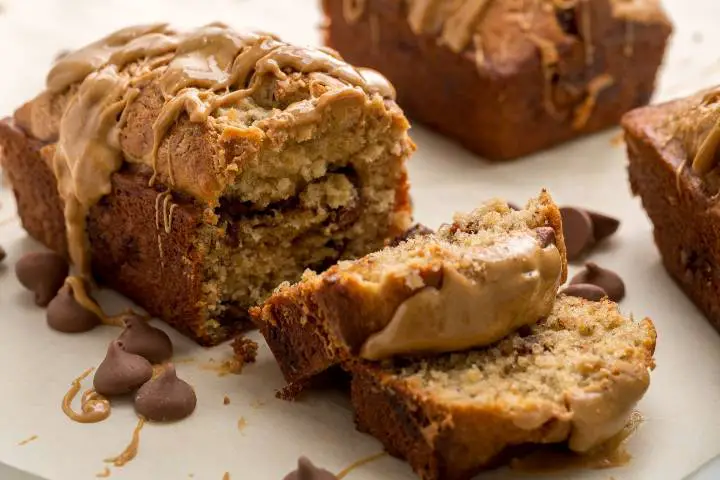
Elevate your banana bread by using natural nut butter. This addition not only brings a protein boost but also introduces healthy fats, enriching the overall nutritional profile.
Greek yogurt banana bread
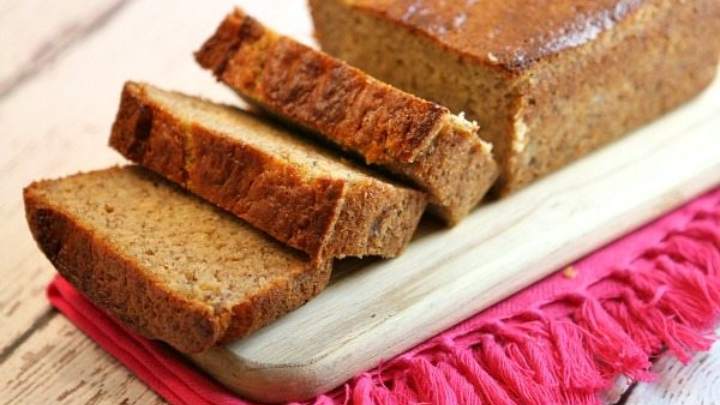
Opt for Greek yogurt instead of some butter. This clever swap reduces saturated fats while ensuring the bread maintains its moist texture.
Coconut flour banana bread
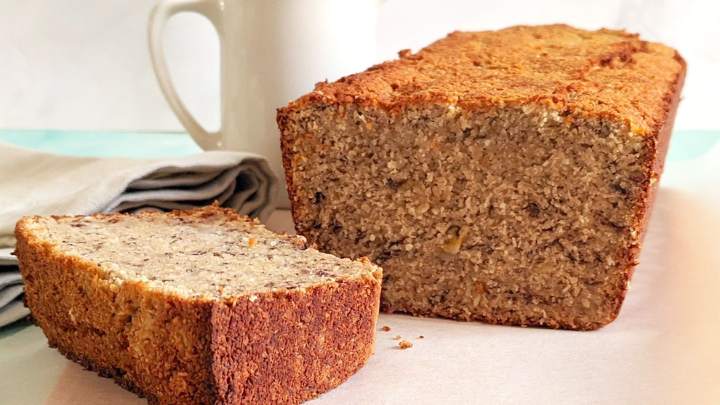
Explore the gluten-free route with coconut flour, imparting a subtle tropical flavor to your banana bread. A win-win for taste and dietary preferences.
Applesauce banana bread
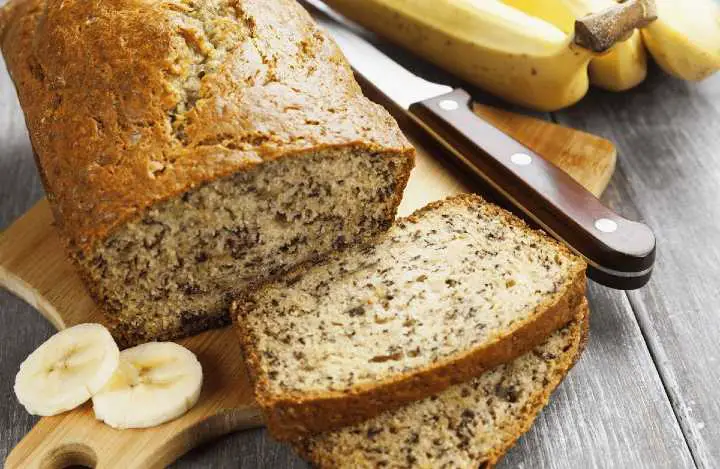
Cut down on sugar and fat by incorporating unsweetened applesauce. This adjustment reduces the overall calorie content, making your treat lighter on the calorie scale.
Chia seed banana bread
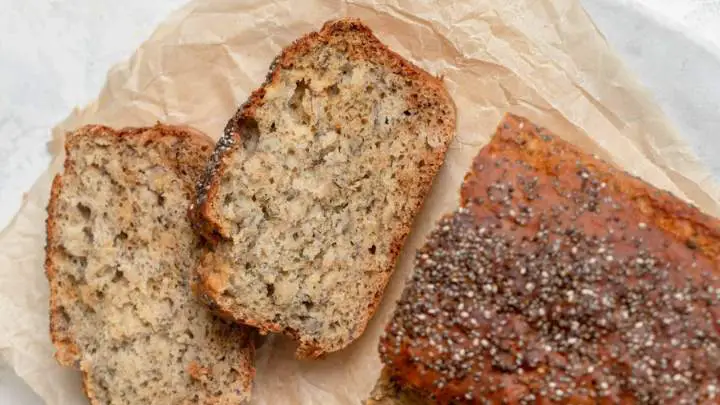
Infuse your banana bread with chia seeds for an omega-3 fatty acid boost and an added layer of texture. A small addition that goes a long way in nutritional benefits.
Banana nut bread with nuts and seeds

Add a mix of nuts and seeds for a delightful crunch, a protein punch, and a dose of healthy fats. Elevate both taste and nutritional content with this wholesome combination.
Choosing these alternatives is like crafting a personalized banana bread tailored to your dietary preferences and health goals.
Not only do these variations enhance the nutritional profile, but they also introduce a symphony of new flavors, transforming your banana bread experience into a tasty and wholesome adventure.
FAQs
How can you reduce the calorie count of banana bread?
Opt for healthier ingredients like whole-grain flour and use natural sweeteners or ripe bananas for sweetness.
Can you freeze banana bread?
Yes, you can. Freezing banana bread helps to preserve it long-term. Slice it before freezing for convenient, portion-controlled servings.
Is banana bread suitable for a weight-loss diet?
If eaten in moderation, banana bread can be a part of a weight loss diet. Be mindful of portion sizes and consider healthier variations.
Can you make banana bread without added sugars?
Yes, you can. With the natural sweetness of ripe bananas or by incorporating healthy alternatives like honey or maple syrup you can make delicious banana bread without added sugars.
Can you eat banana bread for breakfast?
Yes, you can. Pair it with Greek yogurt or top it with fresh fruit for a delightful and satisfying breakfast.
Conclusion
Banana bread is a delicious treat that can be enjoyed as part of a balanced diet when consumed in moderation. The number of calories in banana bread should not be a big deal if you eat in small portions.
To make healthier choices, consider using whole wheat flour instead of all-purpose flour, reducing the amount of sugar used, and adding nuts or seeds for extra protein and fiber.
Bananas are nutrient-dense fruits that are rich in potassium, fiber, and vitamin C. They are also a great source of energy and can be eaten daily throughout the week.
Remember, the key to a wholesome diet is not just what you eat, but how you balance and enjoy it. So, go ahead and indulge in a slice of banana bread, but remember to balance it out with other healthy foods and exercise regularly.
Finally, if you love to make large batches of bread, then you should learn how to store banana bread correctly to preserve its moisture and keep it edible.
